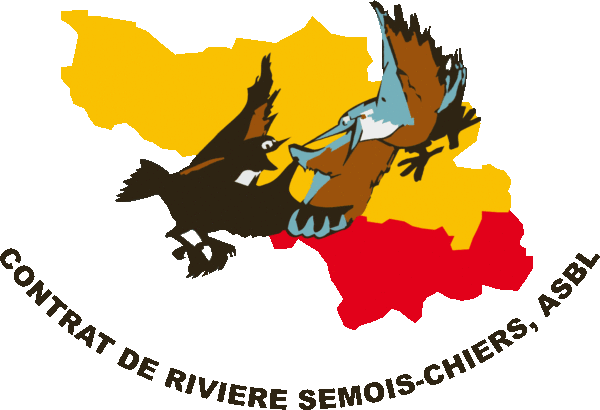Resilient Rivers – Conserving and restoring aquatic resources in the Semois Valley National Park
The Semois-Chiers River Contract works to restore water functions in a sub-catchment area, while contributing to the conservation and restoration of the Semois basin as part of the Semois Valley National Park.







Overview of the project
As part of the Semois Valley National Park, a number of actions are being carried out to achieve our objectives: assessment of the ecological status of watercourses (DCE), combating invasive exotic species, actions in favor of emblematic species (including otters, freshwater mussels and wild trout), restoration of riverbanks, wetlands, islands and spawning grounds, restoration of ecological connectivity (via the removal of obstacles). Actions to restore riverbanks and ecological connectivity are the most important (in terms of budget) and aim to restore the naturalness of the watershed, a key factor in facilitating its resilience.
These actions are one of 75 aimed at preserving the natural, landscape and cultural heritage around the Semois, the territory’s common thread. Within this framework, tourism, mobility and nature/forest-related actions are carried out in concert and in a transversal manner, with solutions based on Nature.
Restored, liberated, resilient, sustainably managed rivers.
Ongoing research
01/01/2022 - 31/12/2026
The results vary according to the different actions and include:
– assessment of 145 obstacles to ecological continuity,
– creation of ponds (n = 2),
– inventory of spawning grounds to be restored (n = 90) and their restoration by 2023 (n = 6) to help the reproduction of emblematic species such as pike,
– inventory of mussel populations at 2 sites (+ to come),
– deployment of photo traps across the whole territory in search of otters (49 deployments, +6500 non-empty sequences currently being analyzed)
– balsamine removal (120 km of riverbanks by 2023),
– selection of streams to be surveyed in 2024 for wild trout (n=6). These actions are part of a 75-strong program to preserve the natural, landscape and cultural heritage of the Semois, the territory’s common thread. Within this framework, tourism, mobility and nature/forest-related actions are carried out in concert and in a transversal manner, with solutions based on Nature.
The water projects began in March 2023. Since then, we’ve been able to:
– Scour the territory and assess the various issues,
– Set up conservation, restoration and species monitoring protocols in collaboration with the relevant authorities,
– liaise with local players, decision-makers and managers to maintain a relationship of trust with them in order to successfully carry out our projects,
– Training: tree planting, identification of invasive species, removal of river obstacles, etc.
– Raise awareness among the general public, stakeholders and decision-makers through conferences (+ 200 pers.)
– Meet with experts and players in neighboring basins to learn from their experience and collaborate on certain themes.
80% subsidised Parc National (SPW), 20 % WWF
organisation
The Semois-Chiers River Contract is a tool for participative water management on a sub-catchment scale.
Through a consensually defined program of concrete actions, the aim is to restore the multiple functions and uses of water, taking into account the concerns of all stakeholders and respecting the environmental potential of the environment. The CR Semois-Chiers is also a player in the Semois Valley National Park, with a focus on conservation and restoration of the Semois basin, as well as the resilience of its resources.
Several operators are involved in setting up and running the Semois Valley National Park, the main ones being: the Gaume Nature Park, the Ardenne Méridionale Nature Park, the Semois-Chiers River Contract, Natagora and Ardenne et Gaume.


